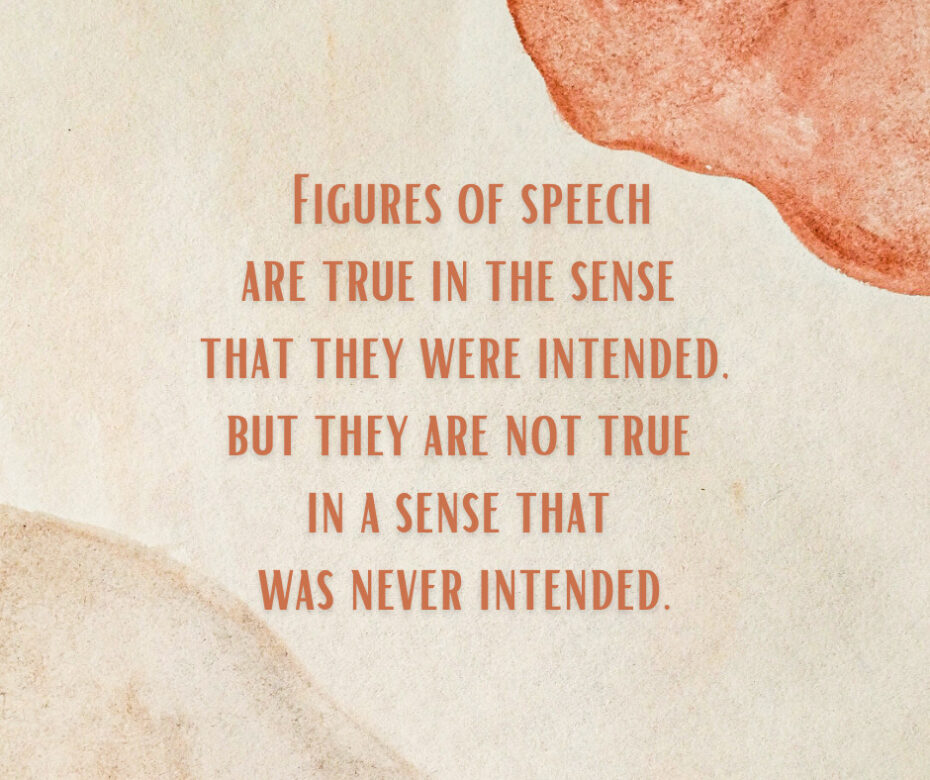R. S. asks, evidently in response to a blog I wrote in the past, this question:
So then when Scriptures say that He will remember our sin no more, that wasn’t true?
Heb. 8:12 says, “For I will be merciful to their unrighteousness, and their sins and their iniquities will I remember no more.”
Or was that not for believers?
Figures of speech are true.
Jesus said He was a vine and a door. Both were true in the figurative sense which He intended. Neither was literally true. When Scripture says God does not remember something, that is a figure of speech called an anthropomorphism. God never forgets anything in a literal sense. He is all-knowing (omniscient).
What “He will remember their sins no more” means is that He does not hold the sins of believers against them in terms of our salvation and even our fellowship with Him (as long as we are confessing them and walking in the light). The context is dealing with the New Covenant that God has made with Israel and which the church ministers in light of. The forgiveness of sins is a new covenant blessing.
For example, F. F. Bruce wrote:
For the Hebrew, “remembering” was more than a mental effort; it carried with it the thought of doing something to the advantage, or disadvantage, of the person remembered. When Cornelius’s prayers and alms ascended as a memorial before God, God took action to Cornelius’s advantage and sent his servant to him with a message which brought salvation to him and his household (Acts 10:4, 31; 11:13f.). When, on the other hand, “Babylon the great was remembered in the sight of God,” it was “to make her drain the wine-cup of the fury of his wrath” (Rev. 16:19; cf. 18:5). If people’s sins are remembered by God, his holiness must take action against them; if they are not remembered, it is because his grace has determined to forgive them—not in spite of his holiness, but in harmony with it. Under the old sacrificial system, there was “an annual reminder of sins” (Heb. 10:3); if there is no such recalling of sins to mind under the new covenant, it is because of a sacrifice offered up once for all (7:27) [Bruce, The Epistle to the Hebrews, Revised edition, p. 192].
Similarly, Koester writes: “‘Not remembering’ does not mean that God is indifferent to sin, since he also brings about new obedience in the present by placing his laws upon the heart and mind. Here, ‘not remembering’ means not holding past sins against people” (Hebrews, p. 388).
I hope that helps.


